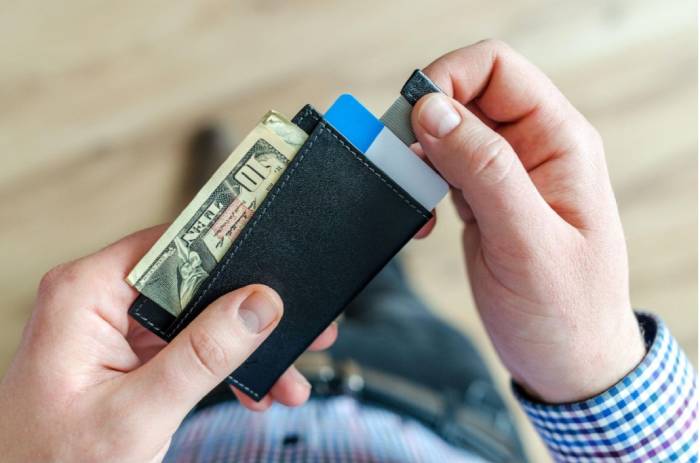Personal loan applications tend to induce some anxiety. Even if they are getting paid interest on the money they lend, lenders do not just dish out cash whenever they feel like it.
When you apply for a personal loan, the lender will often ask you to demonstrate that you have a decent credit score as well as a high enough income to guarantee that you will be able to make the required repayments on a monthly basis (among other requirements).
It is important to keep in mind that the conditions for qualifying for a loan, such as the minimum credit score that is necessary and adequate income, might differ not only across lenders but also between loan programs. It is strongly suggested that you do some study in order to determine which loan program is the most suitable option for you.
When your credit history or income don’t quite meet the standards for a personal loan, having a co-borrower might help you acquire the financing you need. If you have a co-borrower for your personal loan, you may even be able to negotiate a more advantageous interest rate for the loan. In order to assist in securing a personal loan, having a co-borrower is an option that should be considered.
Table of Contents
What Is It, Exactly, That a Personal Loan Is?
Before we go into some pointers on how to make use of a co-borrower, let’s take a step back and look at the big picture: What exactly is a personal loan, and why would you want to get one if you could avoid it?
Personal loans are unsecured installment loans. Personal loans are installment loans that are usually granted without collateral. A personal loan is money borrowed from a financial institution and repaid with interest over a certain period of time.
Personal loans, in contrast to mortgages and vehicle loans, are not always related to a tangible object that you put down as security. This is what we mean when we say that personal loans are “unsecured.” However, personal loans might be provided in the form of secured loans; thus, it is important to examine the specifics when comparing interest rates. Personal loans that are not backed by collateral often have interest rates that are a little bit higher than those of secured loans. After all, if you don’t make your payments, the lender doesn’t have anything to take away from you in the form of a security interest.
Personal loans that are not secured by collateral often have interest rates that are higher than those of other types of loans or credit cards; nonetheless, despite this fact, unsecured personal loans may be a beneficial financial instrument that can help you consolidate current debts, finance significant personal initiatives, and a variety of other things.
If you apply alongside someone who would be a co-borrower if you were accepted, you may not only boost your chances of getting the loan, but also get a better interest rate or a longer payback term.

What Does It Mean to Be a Co-Applicant?
Co-applicants are those who apply for a loan alongside the primary applicant in order to improve their chances of being approved for the loan. Having a “co-borrower” (sometimes called a “co-signer”) might help you receive a loan with more favorable conditions, such as a lower interest rate or longer grace period for making payments.
A person’s credit history and credit score are reviewed along with your own when you apply for a loan with a co-borrower or co-signer. If your personal credit history isn’t ideal, or if you’re young and haven’t had a lot of opportunity to build up a strong credit score just yet, this may be a huge benefit to you.
What Is the Difference Between a Co-Borrower and a Co-Signer?
Although initially they are grouped together as co-applicants, co-signers and co-borrowers ultimately have distinct roles to play in the process. In most cases, the specifics of your financial situation will determine whether you require a co-signer or a co-borrower. Specific criteria and possible advantages are associated with each kind of co-applicant.
A co-borrower is someone who, in essence, takes on the debt with you. The loan agreement will include both of your names, so they will share in the responsibility of repaying the debt together with you. When both parties to the loan agreement stand to profit financially from the loan’s terms, both parties (whether business partners or family members) may apply to be listed as co-borrowers.
You should consider applying for a loan together as co-borrowers in order to cover the cost of the contractor. Your chances of being approved for the loan and having the interest rate you’re given lowered go up when both spouses’ salaries and credit ratings are taken into account.
However, unlike a co-borrower, a co-signer is not a joint borrower but rather helps you get the loan by guaranteeing that you will pay it back. Generally speaking, a cosigner’s responsibility is to make the loan payments in the event that you are unable to do so, but they do not have any use or ownership rights. However, if the primary borrower fails to make payments, this will have a negative influence on the co-borrowers’ credit as well as the co-signers’ credit.

Personal Loan Application Things to Think About Together with another applicant
The main issue in getting a personal loan co-applicant is finding someone ready to sign. After all, in the event that you are unable to satisfy the terms of your loan agreement with the creditor, your co-signer will be responsible for making the payments.
That’s why a lot of individuals asking around for a co-applicant end up contacting close relatives first: mom, dad, a sibling, etc. After all, blood is thicker than water, and it’s probable that members of your immediate family have been there for you in one form or another ever since you were born.
For instance, a co-credit borrower’s score is likely to be negatively affected if they miss a payment on the loan they are jointly responsible for paying back. Once a loan is approved, a co-applicant also becomes a co-borrower, meaning that the two of you are equally responsible for repaying the debt in the event that things don’t go as planned.
It’s possible that you already have a potential co-applicant in mind if you’re seeking for someone to apply with you. An appropriate cosigner may be your spouse if the loan is being used for a family purpose like paying for renovations to the house.
Make sure that, just like you would with a co-signer, you have an open and honest conversation about the duties that come along with being a co-borrower. These responsibilities include the duty for ensuring that payments are made on time. Once you’ve identified a potential co-applicant, the next step is to determine whether types of personal loans permit co-applicants. Some lenders allow co-borrowers but not co-signers; others accept both. Although SoFi does not work with co-signers on personal loans, the company does work with co-borrowers.
When Might It Be a Good Idea to Obtain a Personal Loan?
When considering whether or not to apply for a personal loan with a cosigner, it’s reasonable to consider the risks involved. Personal loans that are not secured by collateral, such as a mortgage, typically have interest rates that are higher than those associated with loans that require some form of security, such as a mortgage. Keeping this in mind, the conventional wisdom advises avoiding debt at all costs.
Taking out a personal loan from billigeforbrukslån.no/medsøker for a financially responsible reason, such as to pay off multiple smaller debts at once, is one example. Personal loans, on the other hand, have the potential to be an effective method of handling one’s financial situation, particularly when used for the aim of consolidating one’s existing debts. When you consolidate your debts into one larger loan, you can simplify the process of making payments on your bills and save money on interest.
Consider the challenge of managing several credit card payments with varying interest rates and due dates. One personal loan big enough to cover all of your bills would simplify your financial life by allowing you to make just one payment each month at a single interest rate. You may even use the money from a personal loan to pay for unanticipated medical expenses or make upgrades to your property.

